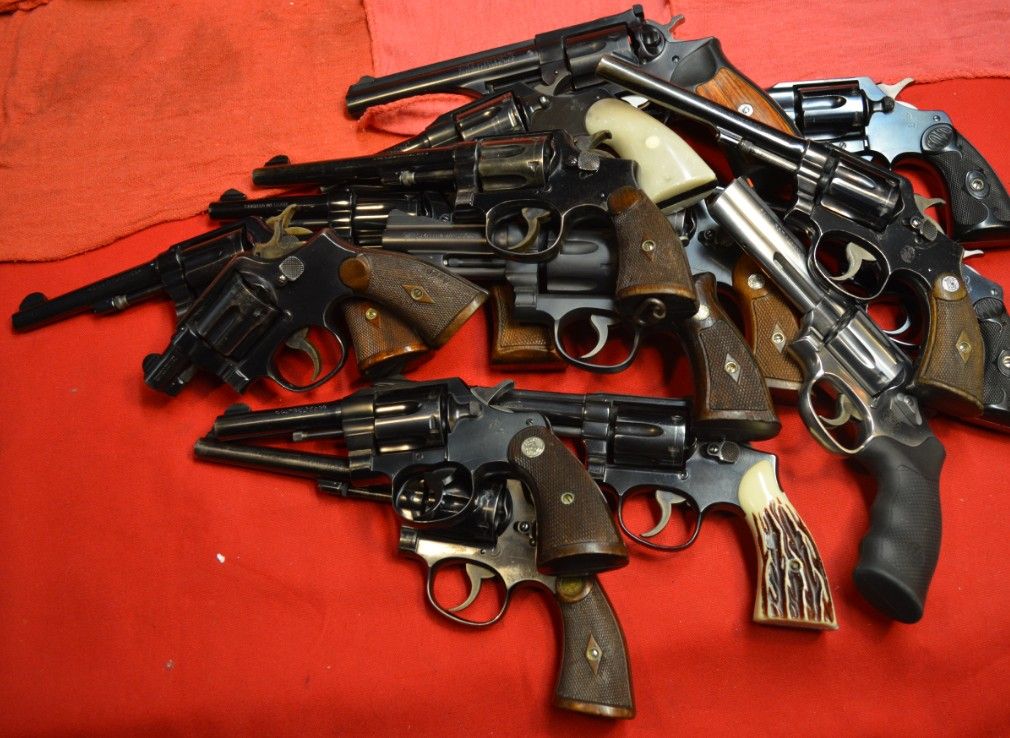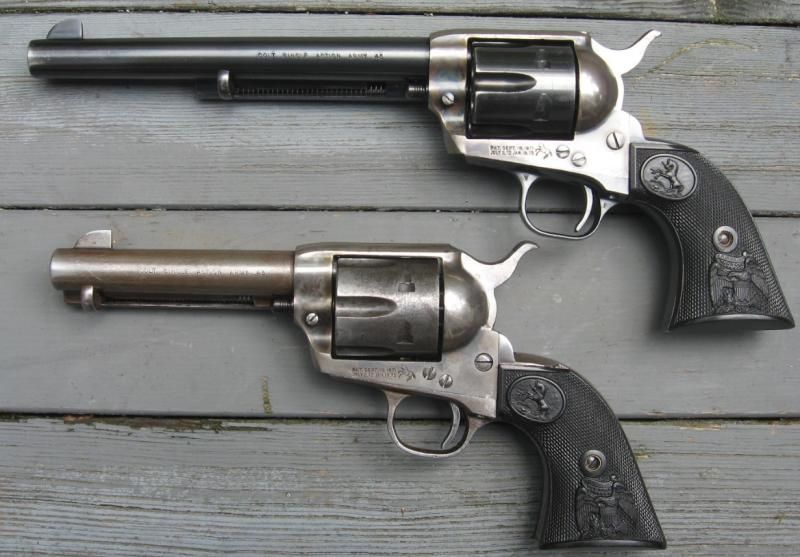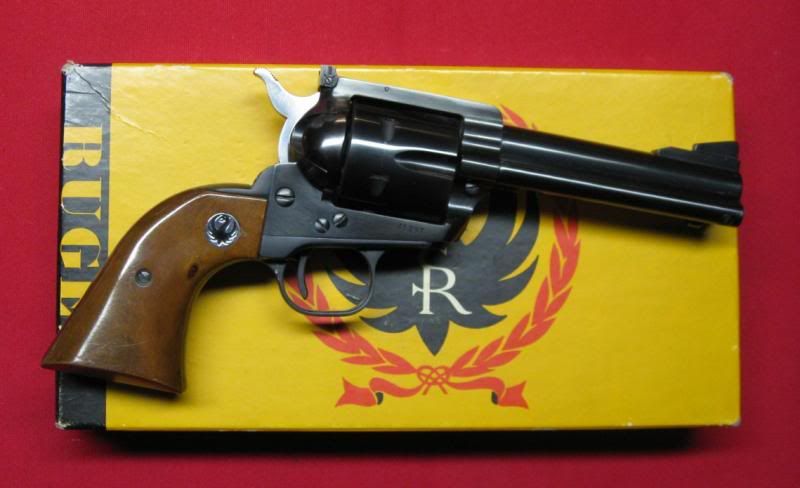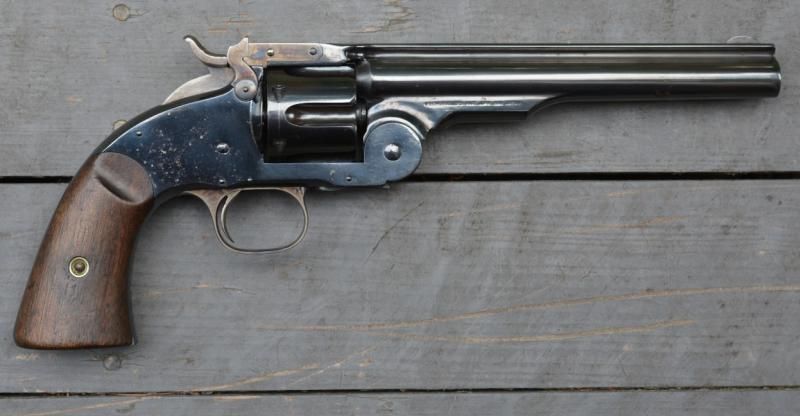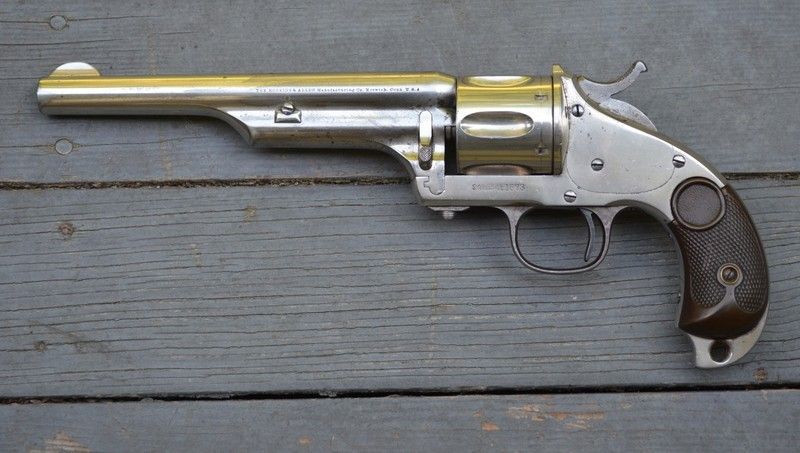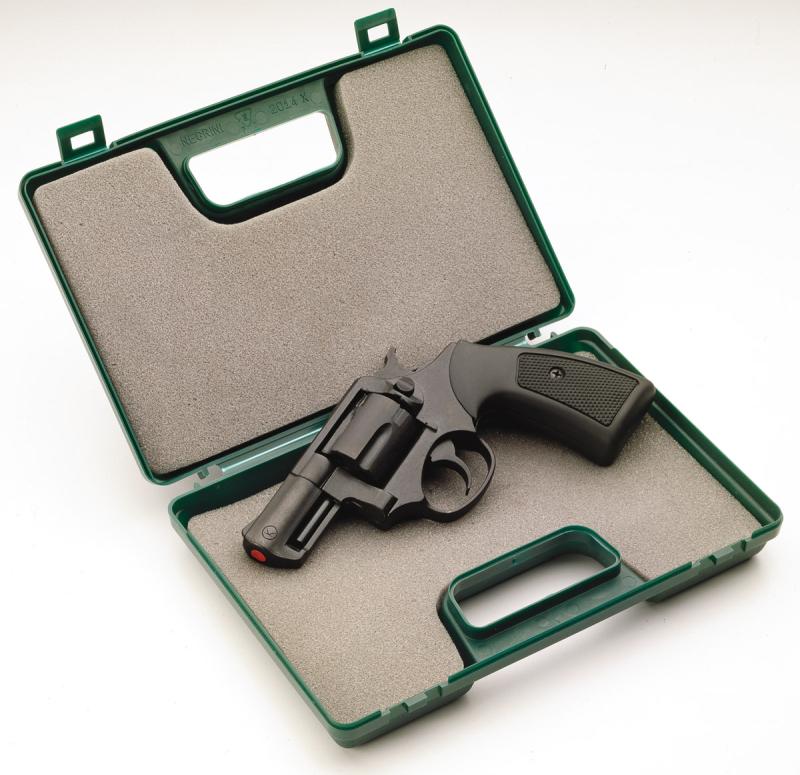S&W and Ruger have the hand on the right side and the barrel consequently turns against the clock.
Ruger, Smith, Charter all go counterclockwise (when viewed from the rear)
Sorry, gentlemen, but you are not entirely correct. The first Ruger I picked up rotates CLOCKWISE, as seen from the rear. A VAQUERO!
You are correct about the DA revolvers, but you didn't SAY you are talking about DA revolvers (only). ALL RUGERS don't go counterclockwise.
Frankly, I would not include single action revolvers in a basic safety course.
I would. I would include at least a mention (and an example if available) of everything I could, in a BASIC safety course. Not just what is currently popular carry, on the street. One of the greatest (filmed) "lack of training" things I have seen was on one of the "cops" shows a little while back. Young officer makes a stop on the street, finds drugs and a DA revolver. The cop DIDN'T KNOW how to UNLOAD the revolver. He placed the loaded gun on the hood of his car, and watched it until his shift SGT showed up (who DID know how to unload it) and unloaded the revolver.
Here we have a (still) common gun, and a cop who can do nothing but keep an eye on the gun until his (older) supervisor can get there, to make it safe.
This, to me, is a definite shortfall in the officer's training...
I grant you that an SA revolver is seldom carried on the street, but if you don't include it in a basic safety course, at all, when Marcie finds Uncle Al's Colt SAA in his dresser drawer, she's not going to have a clue....

